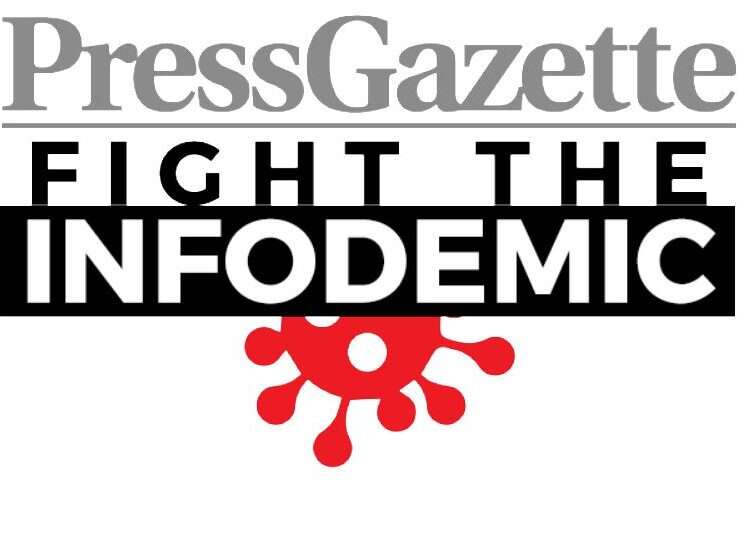
Frontline doctors have told of how Covid-19 misinformation on social media is endangering patients’ lives.
Dr Megan Smith, a consultant anaesthetist at London’s Royal Free hospital, said that some coronavirus sufferers are avoiding hospitals because they believe online tales about the virus not being serious.
Smith, who is a leading member of Every Doctor, a campaign group representing medical practitioners, called for social media platforms to be held accountable for spreading misinformation in the same way as professional media companies.
Her call comes after Press Gazette this week launched a new campaign, Fight The Infodemic, calling on social media companies to do more to combat fake news and conspiracy theories about coronavirus.
Investigations by Press Gazette into Covid-19 misinformation on social media have also exposed various unproven conspiracy theories – for example, claims that the disease does not exist or that coronavirus is caused by 5G technology – that have gone viral across platforms like Facebook and Youtube.
Appearing before MPs on Thursday, Smith said: “I think that the print media, the television media, have regulation and have obligations. If some of this information, or this misinformation, appeared on their pages or on their screens then steps would have taken.
“And I would say: Why are these other platforms – why should they be any different? I completely appreciate that they don’t write the lies, they don’t compose the lies – but they do facilitate the distribution of them, and that’s what we have to get rid of.”
She added that some misinformation “spreads faster than any virus we’ve come across” and that doctors cannot compete when content on social media is read or watched by millions of people.
Appearing before the Digital, Culture, Media and Sport Sub-committee on Online Harms and Disinformation, she said: “What I’ve seen is a lot of patients who aren’t presenting to hospital, they’re presenting very late on in the illness because in some of the cases they have been afraid to come to hospital, or they’ve believed online messaging that suggests that the illness isn’t as serious as it really is – that it’s just like a bit of a cold, a bit of bad flu.
“Or they’ve tried alternative remedies – whether it’s gargling saltwater, there have been all sorts of things out there – so that by the time they come to me and I have an interaction with them they are unbelievably sick.”
She added: “Emergency department doctors have had patients who they’ve seen who have said: ‘I didn’t want to come to hospital because I was afraid.’
“One of our members, for example, has direct experience of one of the Asian and Pakistani community up in the North West, where via Whatsapp there was a lot of circulation of information suggesting that if you go to hospital doctors won’t look after you and in fact what they’ll do is effectively kill you. They will give you an injection, make you comfortable, and leave you to die. So lots of people have not come to hospital because of that.”
Appearing alongside Smith on the virtual committee hearing, advanced paramedic practitioner Thomas Knowles – also a leading member of Every Doctor – condemned social media platforms for failing to tackle the issue of misinformation, and for even making money from it.
He said: “What we cannot have is social networks reducing themselves to merely being bastions of free speech, when what they’re actually doing is profiting off a system which places everybody at risk of increased harm…
“All of that cost is borne at present by public purse in terms of NHS services. The resource in terms of policing it is currently borne by DCMS in terms of their disinformation unit.
“And all we can really do at the moment is turn around and ask nicely for them to remove things.”
Email pged@pressgazette.co.uk to point out mistakes, provide story tips or send in a letter for publication on our "Letters Page" blog
